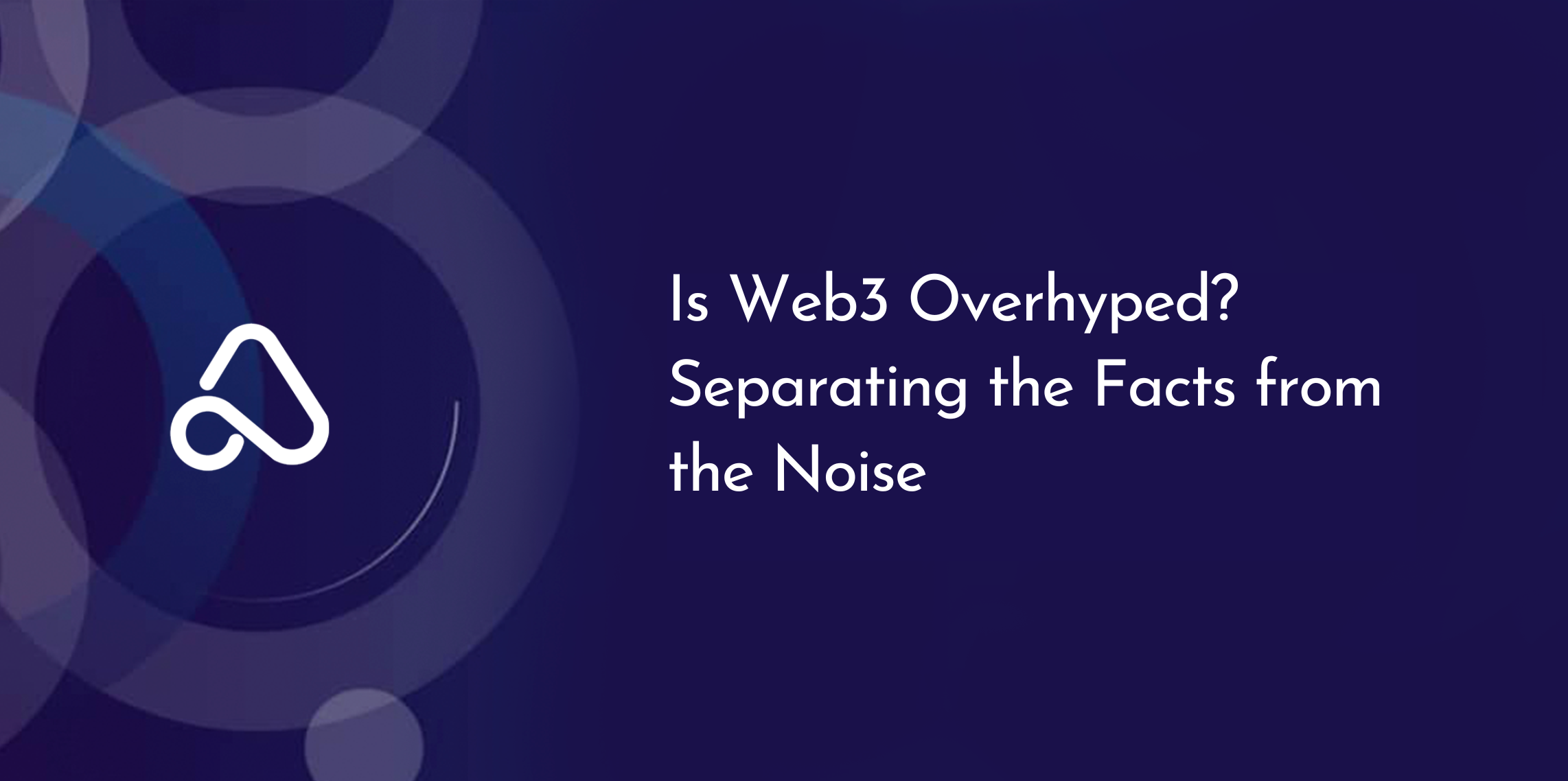Aidi — Is Web3 Overhyped? Separating the Facts from the Noise
Return
If you’ve been anywhere near tech Twitter, tech WhatsApp groups, or even LinkedIn lately, you’ve probably seen the word Web3 flying around. Every few years, the tech industry finds its next “big thing.” From social media, to mobile apps, and more recently, artificial intelligence. Now, the buzzword that seems to be everywhere is Web3.
Everyone is talking about it; some people are convinced it’s the future of the internet, others think it’s just another overhyped tech bubble waiting to burst. But what’s the truth? And more importantly, should African founders pay attention to it or move on?
First, What Exactly Is Web3?
Web3 is often described as the “next evolution/version” of the internet; one that’s built on blockchain technology. Unlike Web2 (which is what we currently use) where big companies like Google, Meta, and Twitter own and control the data created by users who access their platforms, Web3 offers a decentralized ecosystem where users own and control their data, identities, and even the platforms themselves. In simple terms, Web3 puts ownership and control of data with internet users, who can decide exactly how their data is used.
Some of the key components of Web3 are:
- Cryptocurrencies: These are digital currencies like Bitcoin, Ethereum, USDT, which operate within the blockchain environment, without central banks. These digital currencies serve as a medium of exchange to facilitate transactions within the Web3 ecosystem.
- Blockchains: Blockchains serve as the foundational technology of Web3, providing a secure and decentralized network for data storage, transaction recording, and value exchange without a central authority. Blockchains also play a major role in ensuring that the web3 operational framework runs smoothly.
- NFTs (Non-Fungible Tokens): These are unique digital assets which serve as certificates of ownership for specific digital or real-world items like art, music, collectibles, in-game assets, etc. They are a significant aspect of digital ownership in Web3.
- DAOs (Decentralized Autonomous Organizations): These are community-driven governance models. These models allow internet communities, which are formed by people with a common goal, to make decisions collectively through a voting system without central authority. These models are fully autonomous and transparent because they are built on open-source blockchains.
- DeFi (Decentralized Finance): Decentralized finance is a system of financial services built on blockchain technology, which creates a more open, accessible, and transparent financial system that allows users to borrow, lend, trade cheaper and even earn higher interests on digital assets without traditional intermediaries/institutions like banks.
There are so many more components of Web3 and maybe we will exhaust all of them in another article to explain them all. But for now, we just want to get you in on the basics and let you decide if it’s relevant to your startup or not.
Why Some People Think Web3 Is Overhyped
- Too many speculations: Many Web3 projects today are more about trading tokens and less about solving real problems. This makes it look like a gold rush or gambling rather than a genuine innovation.
- Usability issues: For the average internet user, setting up a crypto wallet, understanding gas fees, or figuring out NFTs is still very confusing. Until the user experience becomes seamless, most everyday people will not pay so much attention to it or even bother trying to understand it.
- Scams and rug pulls: From fake token sales to shady NFT projects, Web3 has been plagued with scams that make people skeptical about its legitimacy. Too many people have lost money and that alone makes outsiders suspicious.
- Regulatory uncertainty: Governments around the world (including many in Africa) are still trying to figure out how to regulate blockchain-based businesses. This creates a lot of risk for founders and investors because of unclear legal frameworks, potential operational restrictions, and significant compliance costs. Because, truly, is there anything that can pass through a system of government without the government having some level of control over it?
Even with all the noise, Web3 is not something to ignore
Now, let’s not throw the baby out with the bathwater. Beneath all the noise, Web3 actually has some game-changing potential.
- True Ownership & transparency: For the first time, users can actually own and transfer digital assets without relying on a middleman. No platform can just take them down.
- Financial inclusion: With DeFi and crypto, people will have access to financial services, and can save, borrow, and invest without needing a traditional bank account. This is a game-changer for regions like Africa, which have many underserved communities.
- New business models: From play-to-earn gaming to community tokens, Web3 is opening up new ways of building and scaling businesses that didn’t exist before.
- Global participation: Unlike previous tech waves dominated by Silicon Valley, Web3 is borderless. African founders can build solutions that compete on the global stage from day one. A product built in Lagos, Nigeria, for instance, can serve users in New York or Nairobi instantly.
How African Founders Can Tap Into Web3
Web3 may not be perfect, but it has opportunities that African entrepreneurs should not ignore. If you’re a founder in Africa, here’s how you can add real value and make the most of this innovation:
- Solve Local Problems with Blockchain: instead of just creating the next NFT marketplace, you can leverage blockchain to solve real issues like transparent land ownership records, cross-border payments, or even supply chain tracking.
- Focus on Financial Inclusion: With millions of Africans still unbanked, a powerful DeFi solution can fill the gap by providing access to loans, savings, and investments without needing traditional banks, thereby opening doors for underserved communities.
- Build Trust with Education: One major barrier to adoption is lack of knowledge. If you invest in educating users about crypto, blockchain, and security, you can build stronger communities and grow your user base because people buy trust more than fancy user experiences.
- Partner with Regulators: Don’t wait for regulation to surprise you. Build bridges, engage regulators, and push for innovation-friendly policies to give you an edge.
- Think Global from Day One: The beauty of Web3 is that it’s not restricted by geography. Web3 allows you to compete internationally without needing to “relocate to Silicon Valley.”
So, is Web3 overhyped? Yes, in some ways. The hype is loud, and plenty of projects are just chasing quick money. But at the same time, No, it’s not all hype. The underlying technology is powerful and can reshape the internet, and it’s not going away anytime soon. For African founders, the smart move isn’t to blindly jump on the hype train (like many are currently doing with AI), but to identify where Web3 can solve real, local problems; while also positioning your startup to scale globally.





